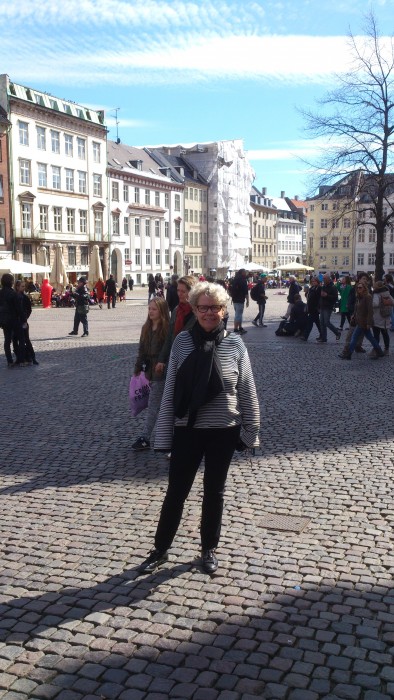Student housing specialists onboard with ISCC
You are here

30/04/14 On the 2nd floor of a beautiful building overlooking one of Copenhagens oldest squares located in the longest pedestrianized zone in Europe, Strøget sits Iben Koch the director of UBSBOLIG. According to Mrs. Koch many companies with offices in the center have relocated to newly developed areas due to the availability of more modern facilities, which has allowed a more diverse set of organizations to access this otherwise exclusive location in the center of town.
UBSBOLIG manages 4500 dorms and other categories of student housing in Copenhagen. It also administers the nominating committee or the CIU, which assigns housing to students and youths in the Capital region. The list currently holds a backlog of more than 13000 students, not counting international and exchange students for which very few stats exist at current. According to Mrs. Koch no one knows exactly how many people are coming and going.
Unlike the trends of company realty, the housing situation for students in Copenhagen is getting quite pressing. So how did it get so bad? Firstly the municipality only recently changed a law that prevented it from establishing new student housing for almost 10 years. Second, urban renewal schemes have changed the composition of the housing stock making availability of smaller affordable apartments in the city a rarity and also sought after by other groups coming to the city, adding further pressure on existing dorms and student housing, which cannot keep up with the demand. UBSBOLIG has been calling for the creation of a forum where landlords, universities and the municipality work together and create coherent institutions to help students. International students don’t feel very welcome in Copenhagen and outside of the universities they don’t have one place just for them.
Mrs. Koch goes on to say that students already in dorms now stay longer because they are afraid they will not be able to find other accomodation which further ads to the waiting-list. Something unusual for Denmark is that many Copenhageners are forced to move back in with their parents at least for a while, pay excessive rents in the regular market place or in the case of students from out of town and abroad, simply leave all together. Furthermore the city is a likely candidate for an increasing number of international students from emerging countries such as China, India and African countries.
The Nordic countries having a fairly proficient English-speaking population after traditional English speaking countries such as the US, UK and Australia. These countries can't accomodate everyone so Scandinavia is naturally in the searchlight. It would be a real missed opportunity for Copenhagen as a science city if the lack of basic housing gets in the way of realizing the great potential and position the city has in terms of its location in the highly populated and bi-national Øresund region with its many research and learning institutions.
According to Mrs. Koch studies show that access to housing is one of the main factors when it comes to students doing well in university and for retaining students in the city and country after their studies. Experiences in the Netherlands point to entrepreneurial international students sticking around and starting businesses because they could access a place during and after their studies ended. In the era of globalized competition among cities for bright minds it should be a given that the most basic of infrastructure, such as housing be given priority.
Iben Koch now a member of the board of ISCC Nordic Campus is happy to see the project moving along. USBBOLIG became associated with ISCC Nordic Campus when its founder Jørgen Rossen was referred to her for an overview of the housing situation. In 2012 a piece of prime real estate was reserved next to the Sundby metro in Amager owned by Copenhagen's development company By & Havn.
The overwhelming support by politicians, countries, foundations and organizations alike in Denmark and abroad currently makes the project the only real contender trying to alleviate and make a dent in Copenhagens growing housing shortage as the problem is set to get worse in the years to come. At present plans are being drawn up for a chinese house and would be the first country to build a house after the city or a foundation builds the actual campus in this the Nordic version of its French homologue, The Cité Internationale Universitaire de Paris. Norway and Sweden are also likely contenders due to the large amount of students from these countries.